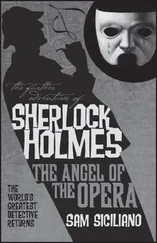Ahern, Jerry - The Web
Здесь есть возможность читать онлайн «Ahern, Jerry - The Web» весь текст электронной книги совершенно бесплатно (целиком полную версию без сокращений). В некоторых случаях можно слушать аудио, скачать через торрент в формате fb2 и присутствует краткое содержание. Жанр: Старинная литература, на английском языке. Описание произведения, (предисловие) а так же отзывы посетителей доступны на портале библиотеки ЛибКат.
- Название:The Web
- Автор:
- Жанр:
- Год:неизвестен
- ISBN:нет данных
- Рейтинг книги:4 / 5. Голосов: 1
-
Избранное:Добавить в избранное
- Отзывы:
-
Ваша оценка:
- 80
- 1
- 2
- 3
- 4
- 5
The Web: краткое содержание, описание и аннотация
Предлагаем к чтению аннотацию, описание, краткое содержание или предисловие (зависит от того, что написал сам автор книги «The Web»). Если вы не нашли необходимую информацию о книге — напишите в комментариях, мы постараемся отыскать её.
The Web — читать онлайн бесплатно полную книгу (весь текст) целиком
Ниже представлен текст книги, разбитый по страницам. Система сохранения места последней прочитанной страницы, позволяет с удобством читать онлайн бесплатно книгу «The Web», без необходимости каждый раз заново искать на чём Вы остановились. Поставьте закладку, и сможете в любой момент перейти на страницу, на которой закончили чтение.
Интервал:
Закладка:
The woman with the unsmiling face apparently wasn't with anyone; she turned and started away. Rourke downed the rest of his Coke and tossed the cup into a trash can nearby, then called out to her. "Hey—ahh." The woman turned around.
Rourke stopped, a few feet from her, saying, "I, ahh—"
"Y'all want to dance?" she smiled.
"All right." Rourke nodded, stepping closer to her.
She slung her handbag in the crook of her left arm on its straps. Rourke took her right hand in his left, his right
arm encircling her wais*- She was about forty, pretty enough, but not a woman who seemed to try to be pretty at all.
Her face was smiling, but not her eyes.
"Who are you?" She smiled, coming into his arms.
"John—my name's John," he told her.
"You're carrying a gun, John," she whispered, her head close to his chest.
"I read a lot of detective stories. I'm the librarian. I know."
"You oughta read more," he told her softly. "I'm carrying two."
"Ohh—all right, John."
"Hasn't anyone heard about World War III here?" he asked her, smiling as they danced their way nearer the blue-grass band.
"If anyone else heard you mention the war, John, the same thing would happen to you that happened to all the rest of them. We'll talk later, at my place."
"Ohh." Rourke nodded. He wondered who the rest of them had been. As he held the woman's hand when they danced, he automatically feit her pulse; it was rapid and strong. . . .
Nehemiah Rozhdestvenskiy stepped down from the aircraft to the sodden tarmac of the runway surface. "The weather—it is insane," he shouted to the KGB man with him.
"Yes, Comrade Colonel." THe man nodded, offering an umbrella, but the rain—chillingly cold—had already soaked him, and Rozhdestvenskiy watched, almost amused, as a strong gust of wind caught up the umbrella and turned it inside out.
He shook his head, and ran through the puddles toward the waiting au tomobile. He read the name on it as he entered. "Suburban." He ran the name through his head—it was a type of Chevrolet. . . .
The ride had taken longer than Rozhdestvenskiy had anticipated because he had been unable to use a helicopter. But as the large Chevy wagon stopped, he felt himself smiling—it had been worth the wait.
There was already a searchlight trained on the massive bombproof doors—they had been bombproof at least. They were wide apart now, gaping into darkness beyond.
"Mt. Lincoln," Rozhdestvenskiy murmured. The presidential retreat.
He stepped out and down, into the mud.
"Comrade Colonel," the solicitous officer, who had tried the umbrella, said as he joined Rozhdestvenskiy in the mud.
"It is all right, Voskavich—do not trouble over the mud. The facility is secured?"
"Yes, Comrade Colonel—there were no prisoners." The KGB officer smiled.
"I wanted prisoners."
"They were all dead when we arrived, Comrade. A fault in the air-circulation system. The bodies, were, ahh . . ." The younger man let the sentence hang.
"Very well—they were all dead, then." Rozhdestvenskiy dismissed the idea.
"We will enter—it is safe to do so then?"
"Yes, Comrade Colonel." He extracted from under his raincoat two gas masks.
"This is for—"
"The bodies, Comrade Colonel—they have not all been removed as yet and—"
"I understand." Rozhdestvenskiy nodded. He ran his fingers through his soaking hair as he started toward the entrance, nodding only at salutes—he was dressed in civilian clothes—and stopping before the steel doors. "You were able to penetrate these?"
"One of the particle-beam weapons ordered here by the late Colonel Karamatsov, Comrade. It was brought here for this purpose I presume?"
"Partly. It is sensitive material that we cannot discuss here in the open.
It was efficient," Rozhdestvenskiy said, looking at the doors and feeling genuinely impressed. The entire central section of both doors looked to have been vaporized.
He ran his fingers through his hair again, pulled on the gas mask, and popped the cheeks, blowij^out to seal it; then he started forward with a hand torch given him by the younger KGB officer. Through the gas mask, hearing the odd sound of his own voice, he said, "You will lead the way for me, Voskavich."
"Yes, Comrade Colonel." The younger man was a captain and Rozhdestvenskiy decided that the man had no intention of remaining one.
"You have done well, Voskavich. Rest assured, your superiors are aware of your efficiency."
"Thank you, Comrade," the younger man enthused. "Be careful here, Comrade—a wet spot and you might slip."
Rozhdestvenskiy nodded, staring ahead of them. There was a lagoon; or at least there appeared to be one in the darkness of the massive cave inside the mountain.
"We have boats, Comrade Colonel. The Americans used them I believe to inspect the lagoon and we must use them to cross it. This was a service entrance and the most direct route to the presidential suite is—"
"I know, Voskavich; I, too, have read these plans until they were something I dreamed about. We shall take one of the boats—Charon."
Rozhdestvenskiy laughed at his own joke—the boatman to take him across the river Styx.
But Voskavich was not the boatman; another KGB man, a sergeant, was running the small outboard. Rozhdestvenskiy climbed aboard from the lagoon shoreline, reassessing his nomenclature in terms of the American language. This would not be a lagoon, but rather a lake because of its progressively greater depth. A man-made lake? he wondered. None of his readings of intelligence reports dealing with Mt. Lincoln had ever
indicated the origin of the waters there.
There was a small spotlight jury-rigged to (he helm of the large rowboat; and between that and the flashlights both Rozhdestvenskiy and Voskavich held, there was ample light to see the even surface of the waters. At its widest, Rozhdestvenskiy judged the lake to be perhaps three-quarters of a mile across. He leaned back as best he could; he liked boat rides, despite wearing the gas mask, despite the lighting. When he someday returned a hero to the Soviet Union, he had decided, he would get a boat and a house on the Black Sea. There were many beautiful women there, and somehow beautiful women seemed especially fond of influential KGB officers.
And influential he would be if he were able to solidify all the speculations regarding the Eden Project, and thereby eliminate this last potential U.S. threat. He favored the most popular theory—that the Eden Project was a doomsday device. The Americans had always been kind and careful people so if they had a doomsday device encircling the globe now, there would be some way of deactivating it in the event it had been launched by mistake. He would find that way of deactivating it, then be the hero.
It was simple.
He even knew where to look for the plans for the device. Part of Mt.
Lincoln held a filing room containing duplicates of the most highly classified war-related documents, for the reference of the president. It was there that this most classified of documents would be kept— there that he would find his answer.
Rozhdestvenskiy felt the motorized rowboat bump
against the far shore of the lake. The ride was over. . . .
Rozhdestvenskiy felt like a graverobber, like an unscrupulous archeologist invading the tomb of a once-great Pharaoh—and perhaps it was a Pharaoh's tomb, the tomb of the last real president of the United States. He discounted this Chambers; he had taken the power, but by all reports from the late quisling Randan Soames, Chambers had taken the power reluctantly.
The power had not been given him as it was to other American presidents—such a strange custom, Rozhdestvenskiy thought as he shone the light of the torch across the gaping mouth of a partially decomposed U.S.
Читать дальшеИнтервал:
Закладка:
Похожие книги на «The Web»
Представляем Вашему вниманию похожие книги на «The Web» списком для выбора. Мы отобрали схожую по названию и смыслу литературу в надежде предоставить читателям больше вариантов отыскать новые, интересные, ещё непрочитанные произведения.
Обсуждение, отзывы о книге «The Web» и просто собственные мнения читателей. Оставьте ваши комментарии, напишите, что Вы думаете о произведении, его смысле или главных героях. Укажите что конкретно понравилось, а что нет, и почему Вы так считаете.







